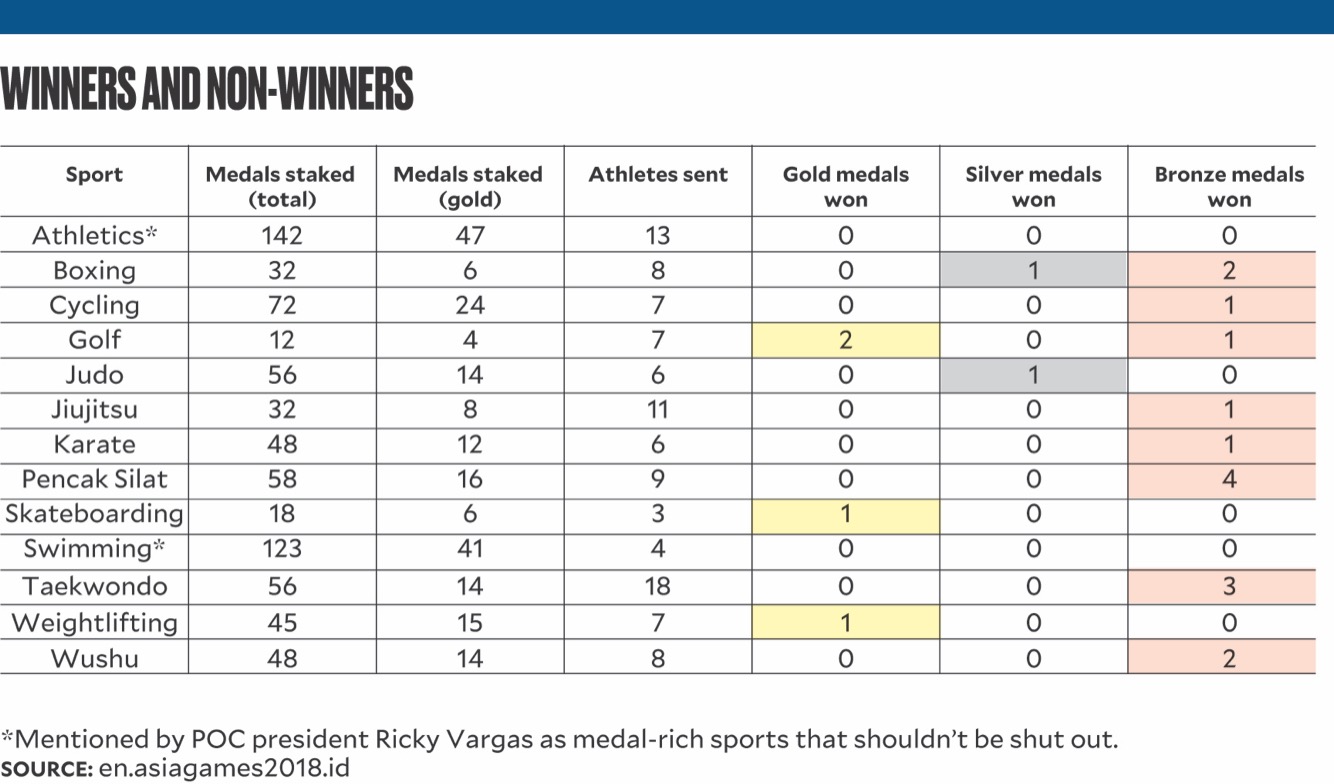
JAKARTA—Like the rest of his countrymen, Philippine Olympic Committee president Ricky Vargas is happy how the athletes performed in the 18th Asian Games—medal winners or not.
It is his first Asiad as head of the country’s Olympic federation and he feels that if there are any faults, they should fall on the shoulders of sports officials, adding that the country can do a lot better if troubled National Sports Associations (NSAs) can clean up their acts.
Weightlifting and skateboarding contributed a gold each to the Philippine cause and golf two. And one thing did not escape Vargas: The common denominator among nonperforming NSAs, not only in these Games, but in other regional competitions as well.
Volleyball, badminton, shooting, swimming, aquatics, athletics, and even boxing where he is the president, performed below expectations, Vargas said.
“There is a thing that is common to them,” Vargas said in an exclusive interview with the Inquirer, two days before the curtains fall on Asia’s version of the Olympics. “And that is, once in their history, there was a squabble within their NSAs.”
Vargas pointed out that athletics and swimming, being medal-rich sports, shouldn’t be shut out in events like this one. Volleyball, he said, despite its popularity, will come home very frustrated because the players realized that they are not ready for the Asian level yet.
“I’m sure volleyball is feeling down because they are so popular [back home] and yet they can’t win here,” Vargas said as the women’s volleyball team, made up of the stars of two leagues back home, was waylaid by formidable teams here.
“Their (NSAs) problem is that all of them are very exclusive,” Vargas said. “We have to talk to these NSAs to straighten things out within their organizations. Because I think we have better chances if they become more inclusive.
“Being inclusive means they would widen their embrace and they can get more talent,” he went on. “We didn’t even come close to winning in most of their sports and our performances in these fronts certainly weren’t encouraging.”
Women propped Filipino pride in the Asiad with golf’s LK Go, Bianca Pagdanganan and Yuka Saso, weightlifting’s Hidilyn Diaz and skateboarding’s Margielyn Didal bringing home golds.
From 22nd place in the 2014 Asiad, the Philippines improved by three notches to No. 19.
Boxing, a gold hope, delivered one silver and two bronzes despite gutsy performances from its athletes—a theme that spread across all sports that the Philippines participated in.
“Athletes have really been carrying us well in international meets,” Vargas said. “I think we should give every athlete all the support they need. They should be rewarded if they win because they get blamed when they lose. Our role as officials is to support the athletes. They are the most important part of the equation.”
Athletes keep pouring their hearts out and somehow, politics gets in the way. Proof of what a cleaned-up NSA can do lies in the National Golf Association of the Philippines, which did away with politicking and favoritism to emerge with two golds and a bronze. (See related story on this page).
And that’s the trend Vargas hopes will be the norm as the Philippines pushes toward the 2020 Tokyo Olympics.

